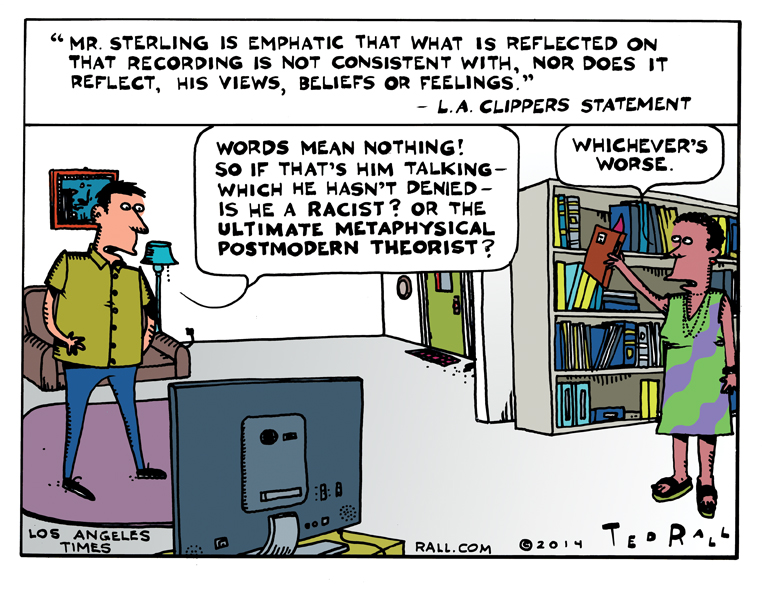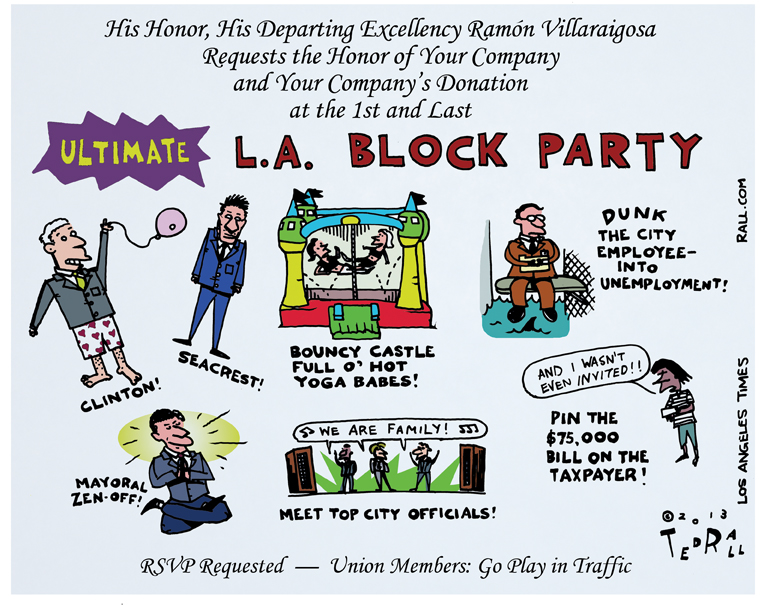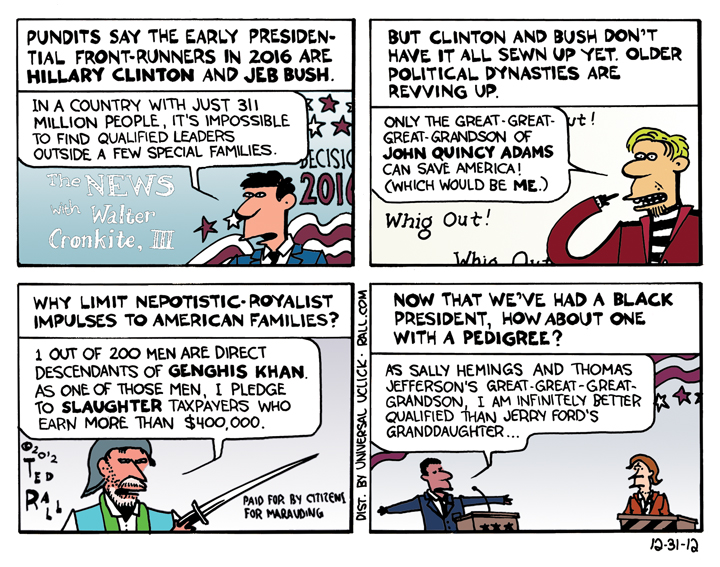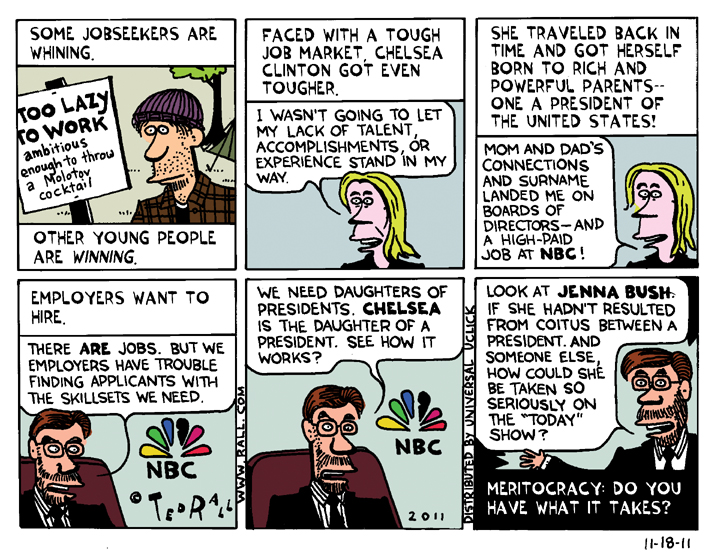Like every other political cartoonist, I love shooting fish in a barrel. So there was no way no how I was going to pass up L.A. Clippers owner Donald Sterling’s surreptitiously recorded racist rant.
However, this is one of those stories where you easily guess what every other cartoonist’s take is going to be. In this case: racism is bad. Not that I don’t think racism is bad. I do. It’s simply that, after American cartoon consumers have read a hundred cartoons saying that racism is bad and that Donald Sterling, as a racist, is bad, I don’t see what would be added to the national conversation on race by a 101st, Ted Rall cartoon saying that racism is bad.
I may be self-deluded (but then how would I know?) in my belief that one of the things that sets me apart from the herd is my interest in facets of big stories that get overlooked by other commentators.
Like: as creepy as Sterling obviously is, this violation of his privacy rights is a nasty piece of business. As I wrote for the tech news website A New Domain:
“As we learned from The People vs. Larry Flynt, society must defend its worst scumbags from having his rights violated, or everyone else risks losing theirs too. I don’t know about you, but I don’t want to live in a world where every stupid thing I blather over the phone is potential fodder for public comment, Twitter wars and cause for dismissal from work. Until we descend into the Stasi-like “Lives of Others” dystopia into which the NSA seems determined to transform the Land of the Formerly Free, everyone — including racist douchebags like Donald Sterling — ought to enjoy a reasonable presumption of privacy on the telephone.”
Privacy isn’t the only under-discussed aspect of a story that, like the O.J. trial and the Monica Lewinsky scandal, has more angles than a porcupine.
Step aside, Bill (“I did not have sex with that woman”) Clinton. There’s a new non-denial denialist in town: the anonymous PR flack in at Clippers HQ who penned this beaut:
“Mr. Sterling is emphatic that what is reflected on that recording is not consistent with, nor does it reflect his views, beliefs or feelings. It is the antithesis of who he is, what he believes and how he has lived his life. He feels terrible that such sentiments are being attributed to him and apologizes to anyone who might have been hurt by them.”
Man. I love this.
Where to start? The hilarity of apologizing for saying things you haven’t actually admitted saying? (As of press time, Sterling still wasn’t fessing up. But NBA commissioner Adam Silver said Sterling admitted it was his voice asking his ex-mistress V. Stiviano not to be photographed with black people or bring them to Clippers games.)
Yes, we’ve all said we wish we hadn’t. But most of haven’t, like Mel Gibson pissed off and drunk and all anti-Semitic, or Donald Sterling going on and on and on for 15 whole minutes, revealed, in great detail, our obviously deeply-felt bigotry. Which is because most of us don’t have those feelings. Even when we’re drunk. Or baited by Instagram and/or a wildly age-inappropriate girlfriend.
So how to explain Sterling’s assertion that “what is reflected on that recording” is inconsistent with and doesn’t reflect his “views, beliefs or feelings”? Besides, I mean, that he and his PR flack think we’re total morons?
The answer is clear: Sterling must be a devotee of the French philosopher Jacques Derrida. Derrida, a pioneering postmodernist best known for his work as a “poststructuralist,” argued that meanings of words and phrases were inherently arbitrary: “Language bears within itself the necessity of its own critique, deconstructive criticism aims to show that any text inevitably undermines its own claims to have a determinate meaning, and licenses the reader to produce his own meanings out of it by an activity of semantic ‘freeplay’…There is, with respect to the very structure of language, no proper context to provide proof of a final meaning.”
Many poststructuralists, active in the 1980s and 1990s, carried Derrida’s theories to their logical conclusion that words were meaningless, everything is unknowable and that life is therefore not only absurd in the Sartrian sense, but devoid of substance.
Bien sur.
Derrida, however, died cruelly misunderstood by his own disciples. Fortunately for Donald Sterling, he is about to have a lot of newly freed-up time on his hands. He’s already shed his expensive ex-girlfriend. He’s not allowed to attend any more basketball games — and what could be more meaningless than watching men throwing and bouncing a ball back and forth?
I recommend that Sterling continue his studies with Benoit Peeters’ riveting “Derrida: A Biography.” At a mere 700 pages, he’ll be sad it’s over way too soon. But that’s why God — whatever He means or is or whatever — created — whatever that means “From the New Criticism to Deconstruction: The Reception of Structuralism and Post-Structuralism.”
On the other hand, this essay may just be a sandwich menu.





